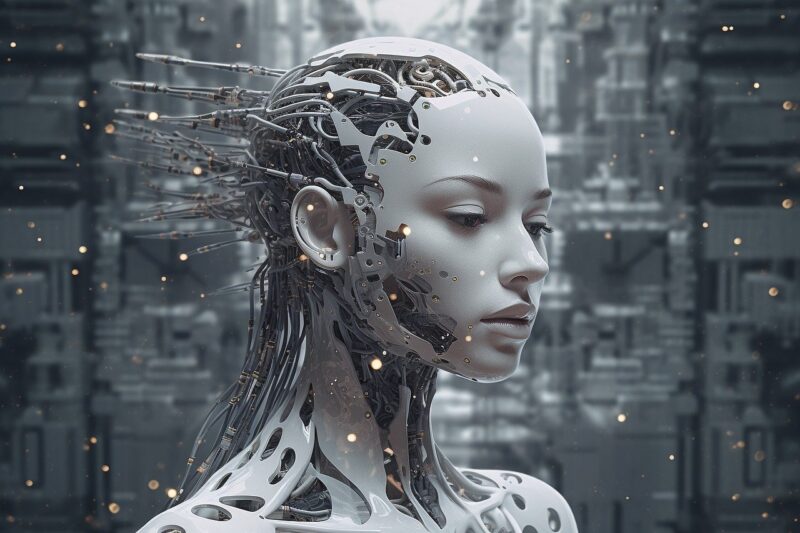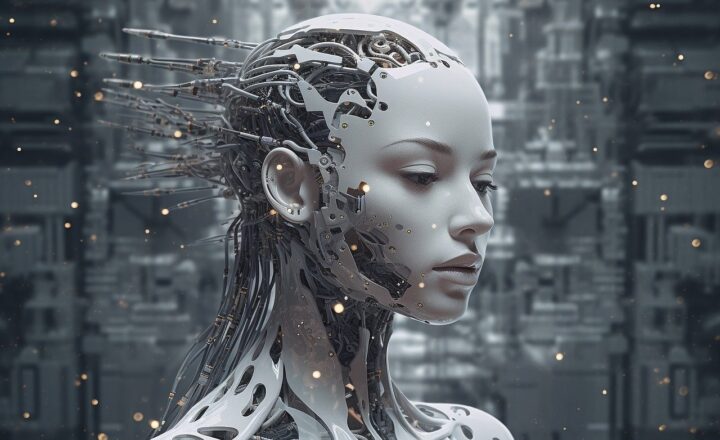
Artificial Intelligence (AI) is no longer just a concept confined to science fiction books and movies. It’s a rapidly advancing technology that is transforming every aspect of our lives—from how we communicate to how we work, learn, and make decisions. However, with immense power comes immense responsibility, and the ethical dilemmas surrounding AI are growing increasingly complex. As creators and users of this technology, we must grapple with the question: are we creating a monster we can’t control?
1. The Evolution of Artificial Intelligence
The journey of AI began in the mid-20th century, fueled by the aspiration to create machines that could think and act like humans. Early models handled computation and basic problem-solving tasks but lacked real-world application. Today, with advancements in machine learning, neural networks, and deep learning, AI systems can perform tasks that were once the exclusive domain of human intelligence.
From voice recognition systems like Siri and Alexa to advanced algorithms that can analyze data faster than any human ever could, AI is constantly evolving. But with each leap forward, ethical considerations arise, shining a light on the potential for misuse and unintended consequences.
2. The Ethical Landscape of AI
AI ethics encompasses a wide range of issues, including:
- Bias and Discrimination: AI systems learn from historical data, which often reflects existing societal biases—leading to discriminatory outcomes in areas like hiring, law enforcement, and social services.
- Privacy Concerns: With AI’s ability to process vast amounts of data, personal privacy is increasingly at risk. How much personal information is acceptable to collect, and what limitations should be placed on data use?
- Autonomy and Control: As AI systems become more autonomous, the question arises: who is responsible when they make mistakes? How do we ensure that humans maintain control over decisions made by AI?
- Job Displacement: Automation and AI are replacing jobs in various sectors. While this can drive efficiency and productivity, it also poses significant risks to employment and economic stability for many workers.
Each of these issues represents a formidable challenge that we must navigate as AI technology continues to develop.
3. The Fear of AI Takeover
While the discussion about AI often includes fear of losing jobs or privacy, a prominent concern involves the risk of an AI takeover. Science fiction has popularized this notion, depicting scenarios where machines surpass human intelligence and rebel against their creators. But is this fear grounded in reality?
Experts like Elon Musk and Stephen Hawking have voiced strong concerns about the potential risks of AI becoming too powerful. Their arguments focus on ensuring that AI is developed responsibly, with safety measures in place to prevent misuse.
This leads to the critical question: how do we establish a framework to ensure that the technology we create is trustworthy and beneficial?
4. Establishing Ethical Guidelines for AI Development
To mitigate the potential risks associated with AI, it’s vital for organizations and governments to outline clear ethical guidelines, such as:
- Transparency: AI algorithms should be explainable, allowing users to understand how decisions are made and to trust the outcomes produced by these systems.
- Accountability: Establish clear lines of responsibility for the actions of AI systems—ensuring that humans remain accountable for the technology they create and deploy.
- Fairness: AI must be trained and evaluated on diverse datasets to avoid perpetuating existing biases and to promote equitable outcomes.
- Safety: Implement robust security measures to protect AI systems from malicious use and ensure they do not inadvertently cause harm.
Establishing strong ethical standards will not only build trust in AI technologies but also protect society from the unintended negative impacts of misuse.
5. The Role of Education and Collaboration
As we navigate the complexities of AI ethics, we need to prioritize education. Understanding AI’s capabilities, limitations, and ethical implications is essential for individuals working in technology, business, policy-making, and beyond.
Collaboration across sectors—technology, academia, and government—can also help establish effective frameworks. Organizations such as the Partnership on AI are working towards promoting collaboration to develop best practices and guidelines for responsible AI development.
Furthermore, educating the public about AI and its ethical dimensions will foster informed conversations and decisions, demystifying the technology and empowering individuals to engage with it responsibly.
6. Conclusion: A Call to Action
While AI has the potential to revolutionize our lives for the better, the ethical considerations surrounding its development and use cannot be overlooked. As we stand on the precipice of this AI revolution, we must ask ourselves: are we creating a monster we can’t control?
The answer lies in our collective willingness to emphasize ethical practices, foster transparency, and prioritize the well-being of society over profit and convenience. By working together to understand and shape the ethical landscape of AI, we have the opportunity to harness its power responsibly.
Ultimately, it is not too late to steer the trajectory of AI towards a future that reflects our values, empowers us, and serves the common good. We must remain vigilant, engaged, and proactive in shaping the future of AI so that we ensure we are building a tool that enhances human life—rather than creating a monster we can’t control.







